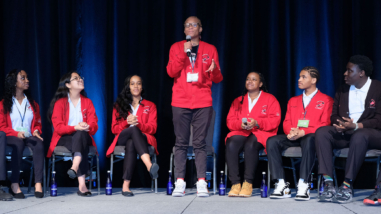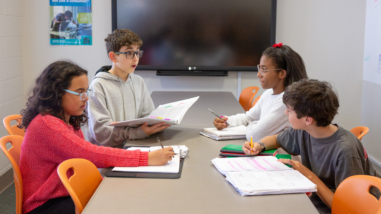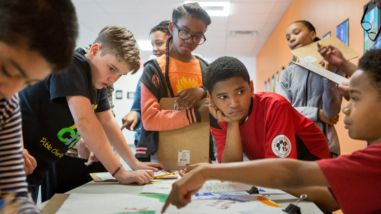The Equity Institute
For The Development Of Culturally Responsive School Systems And Communities
-
Amount$200,000
-
Program
-
Date Awarded2/26/2020
-
Term12.0 Months
-
Type of SupportGeneral Support/Program
Strategies
Overview
The Equity Institute, an education-based nonprofit, helps students gain access to educational experiences that allow them to build the knowledge and skills they need to thrive. The institute uses organizational development, research, and networking to develop innovative school systems that cultivate culturally responsive schools and communities for all learners. Through this work, the institute will help school systems improve students’ educational outcomes, eliminate racial gaps in academic achievement, and foster a positive self-image among students from marginalized communities.
About the Grantee
Grantee Website
www.theequityinstitute.org
Address
225 Dyer Street 2nd Fl, Providence, RI, 02903, United States
Grants to this Grantee
for support of a teacher development program
The Equity Institute is a nonprofit that facilitates learning and networking experiences to promote anti-racist and inclusive school communities. The institute develops and implements innovative solutions for building more diverse, equitable, and inclusive learning and professional environments. This grant will support the expansion of a fellowship to help teacher assistants attain their college degrees and complete their teacher certification requirements in Rhode Island and Pennsylvania. (Substrategy: Educator Capacity)
for the development of culturally responsive school systems and communities
The Equity Institute, an education-based nonprofit, helps students gain access to educational experiences that allow them to build the knowledge and skills they need to thrive. The institute uses organizational development, research, and networking to develop innovative school systems that cultivate culturally responsive schools and communities for all learners. Through this work, the institute will help school systems improve students’ educational outcomes, eliminate racial gaps in academic achievement, and foster a positive self-image among students from marginalized communities.



